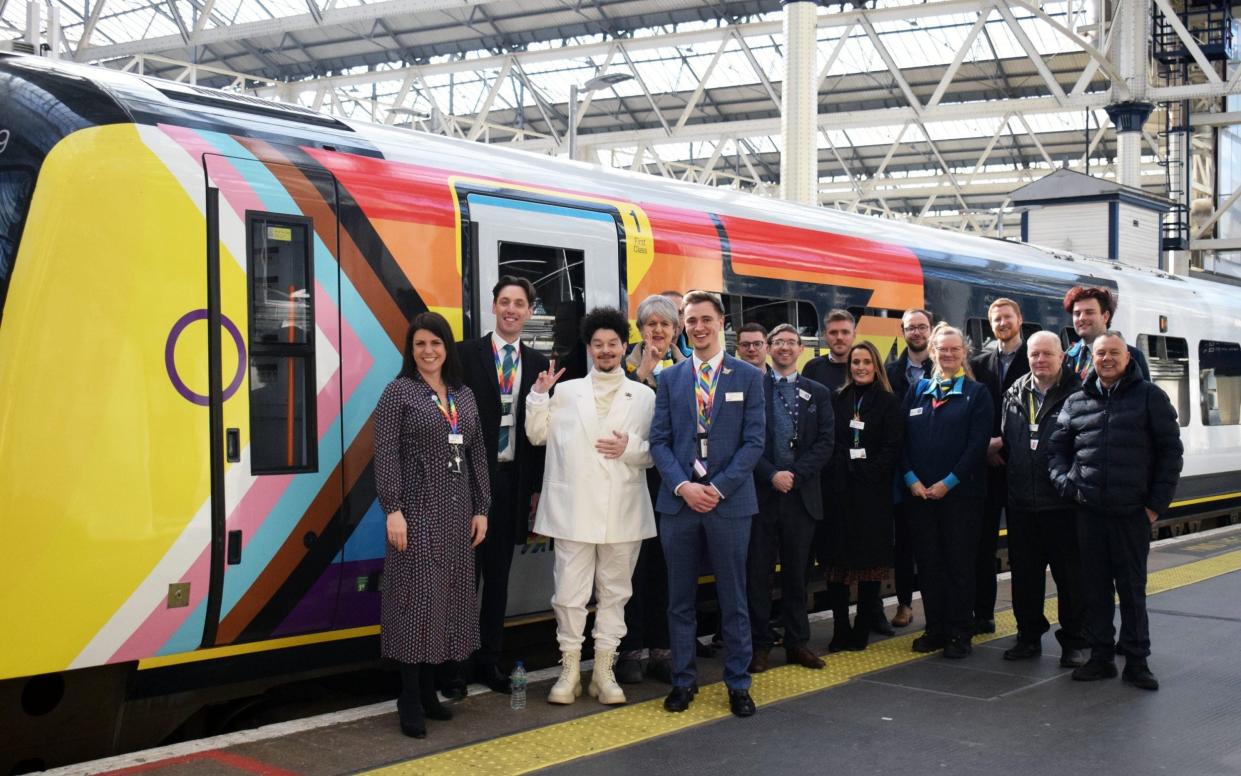Train companies should focus less on virtue-signalling and more on running on time

Intersex people are a very small minority who are born with both male and female anatomy. It’s important to know this. Especially this week. Because South Western Railway has just unveiled Britain’s first ever “intersex-inclusive” train.
Emblazoned with the rainbow colours of the LGBTQIA+ flag, the “intersex intercity”, as it’s been nicknamed, made its maiden journey on Monday, from London Waterloo to Weymouth in Dorset. Stuart Meek, the chief operating officer of South Western Railway, said: “It is wonderful to have this train proudly flying the flag for equality on our network, furthering inclusion with the new intersex-inclusive flag design.”
I’m sure everyone involved in this pioneering initiative means well. I’m just wondering, though: why exactly does a train, of all things, need to be “intersex-inclusive”? Did intersex people not feel welcome on trains, until now? Do our railways have a long history of anti-intersex bigotry?
I’d be surprised, because I’m fairly sure you can’t tell that someone is intersex unless they’re naked. And presumably intersex commuters haven’t been travelling in the nude. But if they have, and were summarily ejected from the train at the next stop, I’m not convinced that anti-intersex bigotry was necessarily the reason.
At any rate, the important thing for prospective passengers to note is that everyone is entitled to use this new intersex-inclusive train, irrespective of their sex, gender identity, preferred pronouns, sexual orientation, hair colour or opinion on JK Rowling. You don’t necessarily have to be intersex. Conductors on the service will not demand to see proof.
All the same, I suppose it’s possible that some passengers might take a less enlightened view of this marvellously progressive venture. Not because they mean intersex people any harm, or wish them ill – but because they cynically suspect that the whole thing is a cheap, vacuous, virtue-signalling gimmick, of the sort that so many modern organisations love to indulge in. As in, the sort that costs them very little money and requires next to no work, yet at the same time earns them lots of lovely free publicity – as well as making them look like wonderfully compassionate and caring employers. No matter what they pay their staff.
Anyway, the people in charge seem happy, and that’s the main thing. Personally, though, if I were running a rail network, and I wanted to make a pioneering societal breakthrough, I would focus on trying to get my trains to run on time. What an exciting first for Britain that would be.

